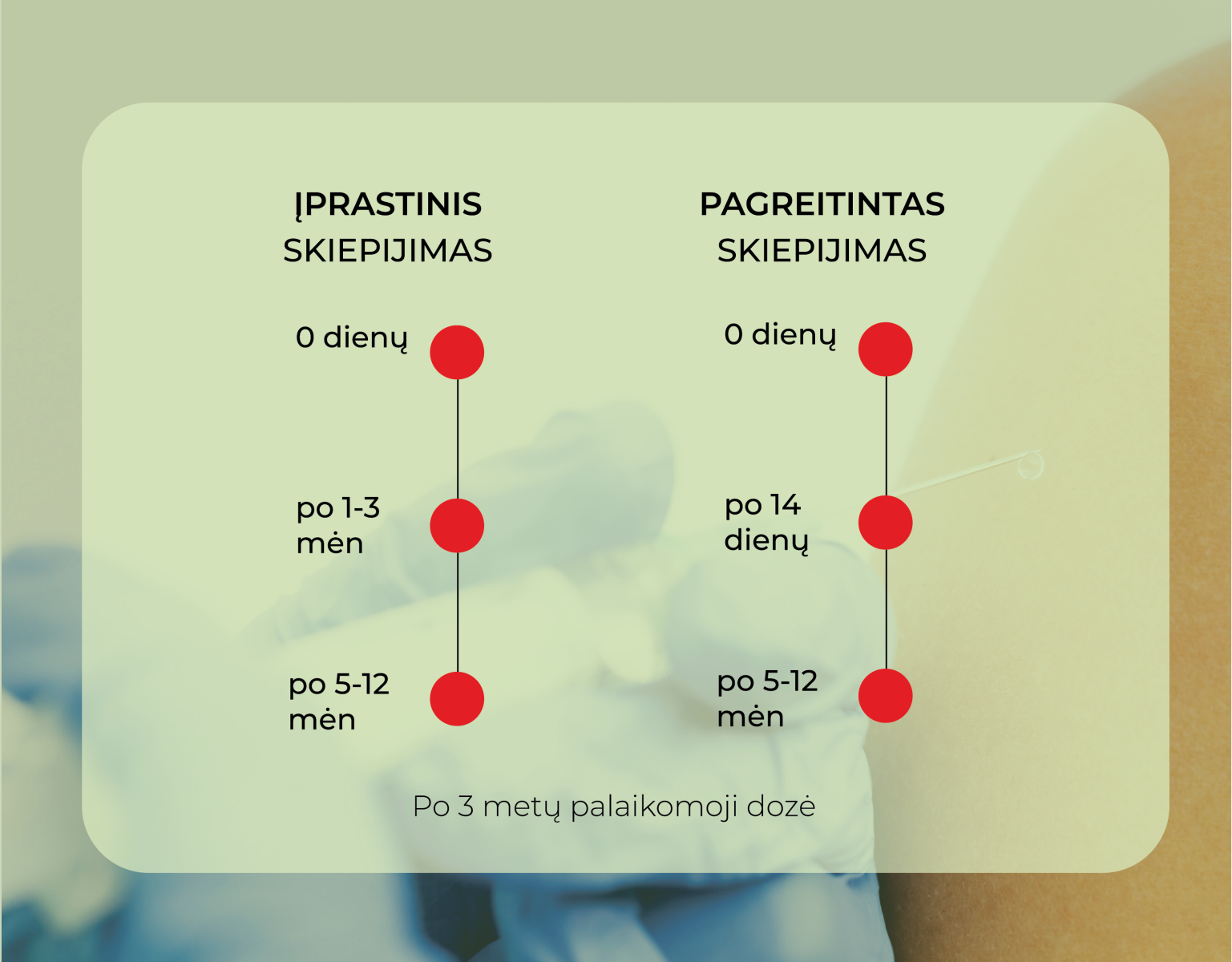In Spring, Not Only Nature Awakens!
We are increasingly pampered by the sun's rays, nature is slowly awakening, and we want to be in it longer. But, do you know what awakens together with nature? Ticks! These arachnids are endemic to the Lithuanian territory and spread diseases dangerous to human health - Lyme disease and tick-borne encephalitis.
Tick-borne encephalitis is a viral infection that affects the brain. Tick-borne encephalitis is usually transmitted to humans through a tick bite and is widespread throughout Lithuania and parts of Europe, so it's very important to know how to protect yourself and your loved ones.
What do you need to know?
- Ticks breed not only in forests and meadows but also in city parks and gardens.
- Ticks are usually active from March to November when the air temperature reaches 6 degrees Celsius. It's important to understand that the tick season can vary each year depending on that year's weather conditions.
- Tick-borne encephalitis is usually transmitted to humans through a tick bite.
How to remove a tick?
- To safely remove an embedded tick, it is important to use fine tweezers and grasp the tick's head as close to the person's skin as possible.
- The tick should be pulled upwards, and once removed, the area should be disinfected with an antiseptic or warm water and soap.
- It is essential to note the date when you were bitten by a tick in a calendar and monitor for any symptoms of tick-borne diseases.
According to the data from the Center for Communicable Diseases and AIDS, the mortality rate from tick-borne encephalitis is 0.5-4 percent. Approximately one-third of people who have had tick-borne encephalitis do not fully recover. The most common residual effects include difficulty concentrating, increased headaches, heightened sensitivity, and behavioral changes. The most effective measure for tick-borne encephalitis prevention is vaccination. Children older than 1 year can be vaccinated with tick-borne encephalitis vaccines.
There are two vaccination schedules:

